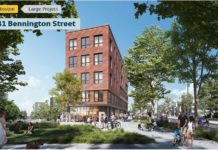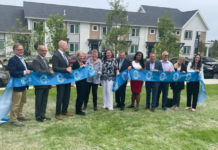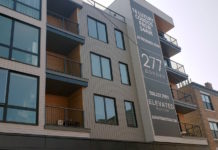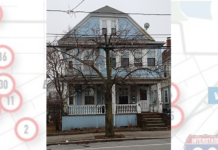Report calls for updates to Linkage and Inclusionary Development Programs
Councilors Lydia Edwards, Chair of Boston’s Housing and Community Development Committee, has released a policy brief (http://bit.ly/building4allbostonians) on two key city housing programs. Inclusionary Development requires certain developers to produce deed restricted units (for rental units, at up to 70% of the Area Median Income) or pay towards a fund that accomplishes the same purpose, and Linkage (also known as Development Impact Fees) generates funds for the Neighborhood Housing and Neighborhood Jobs Trust.
Boston’s inclusionary development and linkage requirements are substantially lower than neighboring communities of Cambridge and Somerville. Inclusionary development in Boston is currently set at 13%, with up to 18% applying in certain areas, while Cambridge and Somerville have adopted 20% inclusionary requirements. In addition, many Boston renters, and Black and Latino households on the whole, tend towards income levels below those required by inclusionary development. Linkage, which in Boston applies to buildings over 100,000 square feet, is currently $10.81 / sq foot with $9.03 for housing. A 2016 “Nexus” study commissioned by the Walsh administration recommended increasing the housing portion to $16.08 – $21.39, depending on exemptions, for a total of $18.07 to $24.04. In January, Councilor Edwards filed legislation to implement the recommendations of the linkage Nexus study.
The report by Councilor Edwards calls for an array of updates to these programs, including:
- Modeling 20% and 25% affordability standards for inclusionary development in Boston;
- Adopting new rental affordability measures to increase the affordability of deed-restricted properties, which may still be out of reach for many Bostonians;
- Eliminating loopholes that allow developers to avoid affordable housing contribution “triggers,” such as building numerous 8-unit or 9-unit buildings when 10-unit buildings are subject to inclusionary requirements
- Evaluating decisionmaking on inclusionary development, which in most cities is done by the Mayor and City Council as opposed to by a quasi-public entity;
- Improving data reporting to track beneficiaries of the inclusionary development program to facilitate city’s efforts toward advancing racial equity;
- Clarifying inclusionary development requirements for Planned Development Areas like Suffolk Downs;
- Promoting long-term affordability by dedicating a portion of inclusionary development funds to community-owned housing, such as community land trusts;
- Adjusting Boston’s zoning code to automatically update linkage and avert missed opportunities;
- Updating state law to codify inclusionary development and modernize linkage.
Table 1: Comparison of Inclusionary Development in Metropolitan Boston Municipalities
|
Municipality
|
Inclusionary %
|
Unit threshold
|
Authorization
|
|
Boston
|
13-18%, varies based on zones
|
10 units or more
|
Policy; cannot be adopted via zoning article or ordinance
|
|
Cambridge
|
20% citywide
|
10 units or more
|
Zoning Act + Ordinance
|
|
Somerville
|
20% citywide for large developments; 17.5% for 8-17 units; 6-7 units have option of building affordable unit or paying into fund
|
6 units, 8 units and 18 units each trigger deeper requirements.
|
Zoning Act + Ordinance
|
|
Quincy
|
10% citywide
|
10 units or more
|
Zoning Act + Ordinance
|
Table 2: Comparison of Development Impact Fees in Metropolitan Boston Municipalities
|
Municipality
|
Linkage
|
Exemption
|
Revision
|
|
Boston
|
$10.81 / sq foot
($9.03 for housing)
|
First 100,000 square feet
|
Can ONLY be changed every 3 years per statute, adjusted based on change to CPI.
|
|
Cambridge
|
$15.95/ sq foot, all housing
|
First 30,000 square feet
|
Automatically re-evaluated every 3 years; annual increase based on change to CPI.
|
|
Somerville
|
$12.46 / sq foot
($10 for housing) |
First 30,000 square feet
|
Zoning ordinance requires 2020 study; annual increase based on change to CPI.
|
Source: City Councilor Lydia Edwards’ office.
















